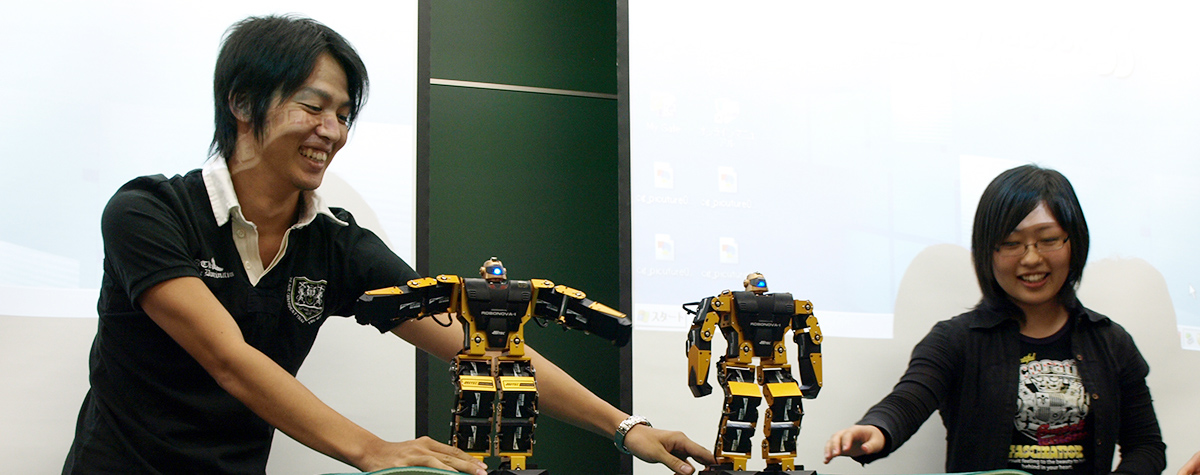Program Features
The Department of Computer Science conducts education and research in computer fundamentals: namely, computer architectures, languages, and intelligence.
The elementary courses provide an introduction to Information Science and explain what computers are, how they can be used and how to write computer programs. In addition, students receive a detailed grounding in the fundamental mathematics and physics required for more advanced subjects in computer science.

The core curriculum consists of courses in digital circuitry (an integral element of computer hardware), computer architectures, core software operating systems, programming languages and program development environments. Students also learn how programs are translated into computer instructions as well as about topics in data storage and retrieval.
The advanced curriculum enables students to deepen their understanding particularly of topics in artificial intelligence, soft computing, parallel processing, and computer architectures.
The Artificial Intelligence and Soft Computing course focuses on the rapidly developing field of artificial intelligence as a new form of soft computing. The Parallel Processing and Computer Architecture course provides advanced training in new computer hardware and software architectures, with a focus on algorithms.
The curriculum also includes an Information Science project that students start in their first year as a means of honing their skills in conceptualization and the recognition and solution of problems, an Education Assistance course that allows students to serve as assistants in high-school computer education programs, a Special Computer Science Seminar that exposes students to the latest papers of relevance to their graduate thesis; and a Computer Science Graduate Thesis course.
Message from the Department Chair of Computer Science
Welcome to the Department of Computer Science
From the year of 2012, we established the Course Systems in our faculty. Currently, there are three courses: “Computer Science Course”, “Communication Science Course”, and “Media Science Course”. After the first year studies, the students in CS department can select the Computer Science Course or Communication Science Course for their second and third years’ studies. The Computer Science Course focuses on the core areas of computer science. In this course, the students not only can deeply understand the theoretical computer science, but also can design hardware circuits such as embedded CPUs, input/output controllers, and high-performance CPUs, and develop system software and applications, such as compilers, drivers, and large-scale database applications. The Communication Science Course focuses on the communications among computers and the communications between humans and computers. The students can learn the contents of the augmented reality, computer graphics (CG), artificial intelligence, cyberworlds, The Internet and security, user interfaces, and game design. The main course in the fourth year is the graduation research. The students can join a laboratory, research themes they are interested in, write graduation research theses, and finally present their research results.
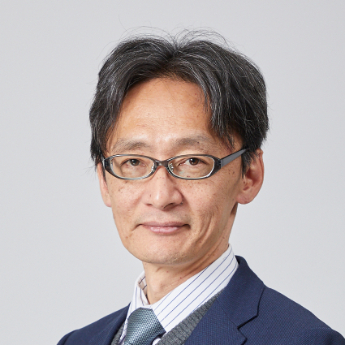
Nobuhiko AKINO, Professor, Ph.D.
Department Chair of Computer Science

Computers are used everywhere, such as in homes, factories, offices, transportations, banks, and computing centers. These computers contain either low-cost embedded CPUs or high-performance multithreading multi-core CPUs. Because of the advances in computer and networking technologies, supercomputers containing hundreds of thousands of nodes have been built. It has been predicted that the parallel systems of the next decade will contain 10 to 100 millions of nodes. Another hot topic in the computer science field is “cloud computing,” which provides a convenient environment for access to a shared pool of configurable computing resources through the network and Internet. These technological advances or inventions have changed and are changing our lives and society. You are welcome to join our CS department to learn how to cope with these challenges and make your contributions to the future of our world!
Professors of Computer Science
Prof. Kensuke AISHIMA
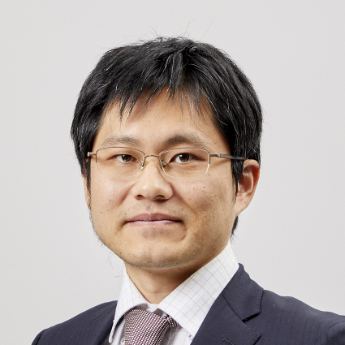
Numerical Analysis Lab
Kensuke AISHIMA
Professor (Computer Science, Graduate School)
Doctor of Information Science and Technology
Research area:
- Numeric Analysis
- Numerical Simulation
- Data Analysis
Kensuke Aishima received his bachelor, master, and doctoral degrees from the University of Tokyo in 2006, 2008, and 2011, respectively. From 2011 to 2017, he was an assistant professor of the University of Tokyo. From 2017 to 2018, he was a preject lecturere of the University of Tokyo. Since April 2018, he has been an associate professor at the Faculty of Computer and Information Sciences, Hosei University. His current research areas include numerical simulation and data analysis. He is a member of the Japan Society for Industrial Applied Mathematics (JSIAM).
Message
Numerical analysis plays an important role in modern science and information technlogy. Physical simulation is classical and famous application. In addition, numerical analysis is fundamental technique in big data analysis. In particular, the singular value decomposition (SVD) is indispensable for data analysis. My major is numerical linear algebra, including the SVD computations, eigenvalue algorithms, numerial algorithms for linear systems, and so forth.
Prof. Mina AKAISHI
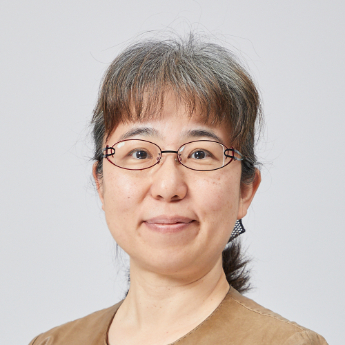
Information Compilation Lab
Mina AKAISHI
Professor (Computer Science, Graduate School)
Ph.D. (Engineering)
Research area:
- Narrativity based Information Access
Mina AKAISHI received the B.E., M.E. and Ph.D degrees in Electorical Engineering from Hokkaido University in 1990, 1992 and 1995 respectively. Before joining Hosei University, she was an Associate Researcher at Shizuoka University and Hokkaido University, and an Associate Professor at the University of Tokyo.
Prof. Satoshi OBANA
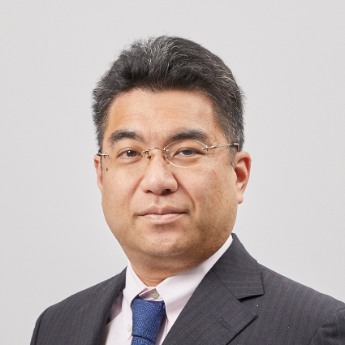
Information Security Lab
Satoshi OBANA
Professor (Computer Science, Graduate School)
Doctor (Engineering)
Research area:
- Cryptography
- Information Security
I study cryptography and information security which enable us to securely deal with our important and/or confidential data stored in open networks.
With the rapid spread of cloud computing, more and more services are deployed on servers in open networks. These servers are not necessarily trusted and are good target of crackers who aim at accessing to confidential data illegally. In fact, many incidents of information leakage from servers in open networks are reported today.
My research interests are, therefore, technologies tolerable to information leakage. In particular, I study secret sharing scheme and computation on encrypted data. Secret sharing scheme is a cryptographic protocol in which secret data is devided into multiple pieces in a way that no one can obtain any partial information about the secret unless (predetermined) number of pieces are collected. Computation on encrypted data is also a cryptographic protocol which enables us to process (e.g., search, compute statistics) encrypted data without decrypting them. I believe these technologies will help us to store our important and confidential data in open networks without fear.
Prof. Akira SASAKI
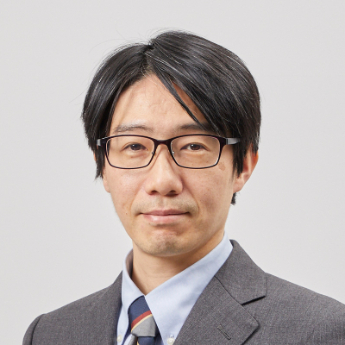
Programming Language Lab
Akira SASAKI
Professor (Computer Science, Graduate School)
Ph.D. (Science)
Research area:
- Programming Languages
- Domain Specific Languages
- Attribute Grammars
Akira SASAKI received his BSc, MSc and Ph.D in Science from Tokyo Institute of Technology, Japan, in 1994, 1996, and 2004, respectively. He was a research associate of The Institute of Medical Science, The University of Tokyo (2003.1-2005.9), and of Interdisciplinary Graduate School of Science and Engineering, Tokyo Institute of Technology (2005.9-2006.3). From April 2006, he joined the Faculty of Computer and Information Sciences at Hosei University, Japan as an Associate Professor.
His research interests include programming languages, programming language processors, and programming environments, especially compiler compilers, attribute grammars, and systematic debugging. He is a member of ACM, and the Japan Society for Software Science and Technology.
Message
We study domain specific language (DSLs), programming languages specialized for developing software on specific fields. Especially, our research focuses on the methodologies to design and to implement DSLs in efficient ways.
Prof. Yuji SATO
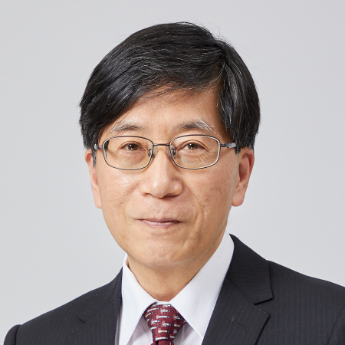
Intelligent Evolutionary System Lab
Yuji SATO
Professor (Computer Science, Graduate School)
Ph.D. (Engineering)
Research area:
- Evolutionary Computation
- Machine Learning
Yuji SATO was born in Tokyo, Japan on July 3, 1957. He received the B.E. degree in applied physics and Ph.D. degree in Electrical engineering from the University of Tokyo, Japan in 1981, 1997, respectively. From 1981 to 2000, he was with the Hitachi Ltd., Tokyo, Japan, where he was engaged in research and development of computer-aided design automation systems, an intelligent sub-processor for hardware emulation, and a high-performance neuro-processor of digital neurons. From 1992 to 1995, he was also temporarily transferred to Real World Computing Partnership, Tsukuba, Japan, where he was engaged in research of genetic algorithms for time-series problems. In April 2000, he joined the Faculty of Computer and Information Sciences at Hosei University, Japan, as an Associate Professor, and then a Professor since April 2001. From 2007 to 2008, he was a visiting scholar at Illinois Genetic Algorithms Laboratory (IlliGAL).
His current research areas include: computational intelligence, evolutionary computation on many-core architecture, and evolution of machine learning techniques in design.
He is a member of the IEEE Computer Society, IEEE Computational Intelligence Society, the ACM/SIGEVO, the Japanese Society for Evolutionary Computation, and the Information Processing Society of Japan.
Message
My research and that of my graduate students focus on distributed genetic algorithms on many-core architecture, computational intelligence in Games, and evolutionary computation for real-world applications. I want to bring up talented people with the creatively.
My personal interests include playing tennis, traveling, and gardening.
Prof. Yuichi SUDO
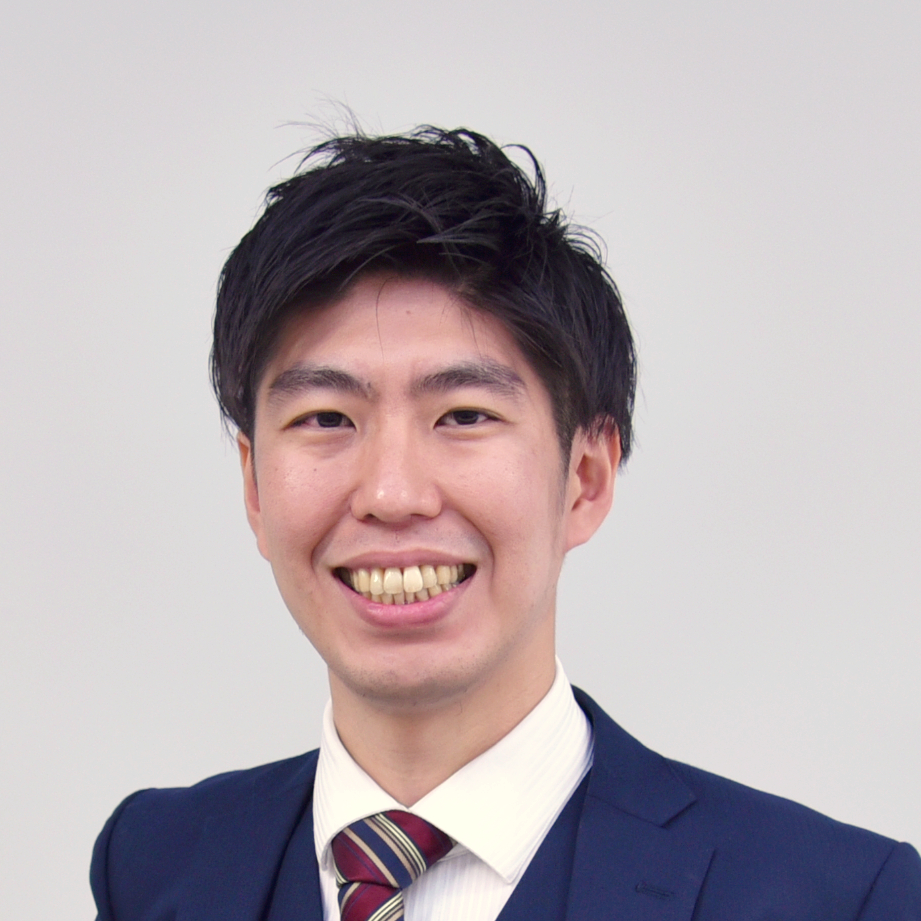
Algorithm Design Lab
Yuichi SUDO
Associate Professor (Computer Science, Graduate School)
Ph.D. (Computer Science)
Research area:
- Distributed Computing
- Graph Theory
Yuichi Sudo received the B.E. degree in engineering, the M.E. degree in computer science, and the Ph.D. degree in computer science from Osaka University, Japan, in 2009, 2011, and 2015, respectively. He worked at NTT Corporation and was engaged in research on network security during 2011-2017. He was an assistant professor with the Graduate School of Information Science and Technology, Osaka University, during 2017-2021. He has been an associate professor at Faculty of Computer and Information Sciences, Hosei University, since April 2021. His research interests include distributed algorithms and graph theory. He is a member of IEEE and EATCS.
Prof. Nicholas DELGREGO
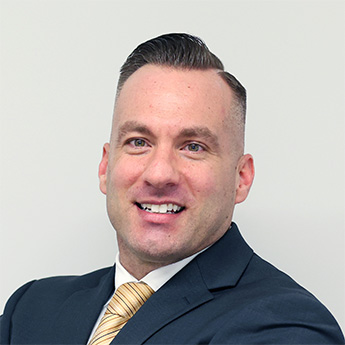
Nicholas DELGREGO
Professor (Computer Science, Graduate School)
M.Ed. (English Education)
Research area:
- English Education
- Second Language Acquisition
Nicholas DELGREGO received his bachelor’s and master’s degrees from Pennsylvania State University in 2005 and 2006. He has also completed doctoral coursework at Waseda University in 2022. He has worked in various educational environments throughout Japan since 2006. In 2019, he began working for Hosei University as a part-time lecturer. He then joined CIS as a full-time faculty member in 2023.
Professor DELGREGO’s main area of research is English Education and Secondary Language Acquisition. He is particularly interested in peer learning, the study of how students help each other learn inside and outside the classroom. Professor DELGREGO is also a member of the Writing Center Association of Japan and helps organize international conferences for writing center administrators, tutors, and writers.
Message
English is vital for students in computer and information science fields. Most research is presented in English. Therefore, CIS students need a strong command of English to both engage and contribute. In my classes, I help students use their English knowledge and apply it to practical situations.
My hobbies are traveling, weight-training, and video games.
Prof. Soichiro HIDAKA
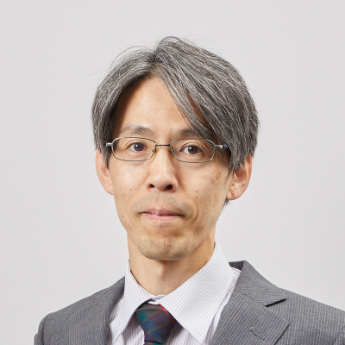
Infrastructure Software Lab
Soichiro HIDAKA
Professor (Computer Science, Graduate School)
Ph.D. (Engineering)
Research area:
- Programming Languages
- Program Transformations
- Bidirectional Transformations and
their Applications to Model Driven Engineering
Soichiro Hidaka received his bachelor’s degree in engineering and Ph. D in Engineering from the University of Tokyo in 1994 and 1999. He had involved in research projects such as parallel programming language implementation, micro-kernel based operating system and document processing system. He is interested in studies on infrastructure software systems and particularly on database programming languages. Recently he has been conducting research on bidirectional graph transformations that is intended to facilitate bidirectional model transformations. He had visited AtlanMod team in Ecole des Mines de Nantes for 1 month starting from Apr. 21 2010, and attended seminar on Bidirectional Transformations “”bx”” at Dagstuhl in January 2011. He served as a member of NII Shonan Meeting steering committee until March 2016. He is a member of Bidirectional Transformations steering committee.
He is a member of IEEE, ACM, Japan Society for Software Science and Technology (JSSST), Information Processing Society of Japan (IPSJ) and Institute of Electronics, Information and Communication Engineers (IEICE).
Message
Transformations can be seen in various situations in information processing. For example, a query can be considered as a transformation from source (database) to target (result/view). It is desirable for the updates to be propagable not only from source to target, but also in the opposite direction. However, the latter — propagating updates to the source — is not so obvious. Bidirectional transformation achieves this propagation, and we have recently proposed and implemented a compositional approach to bidirectional transformation on graphs. One of our applications of the bidirectional graph transformation is to support consistent model transformation in model driven software development.
Soichiro Hidaka is leading a research subproject on bidirectionalization of graph transformation as a part of The BiG (http://www.biglab.org) project on “”Linguistic Approach to Bidirectional Model Transformation””, whose focus is on the above applications. The project is establishing graph transformation framework for model transformation by representing models as graphs.
Prof. Toshio HIROTSU
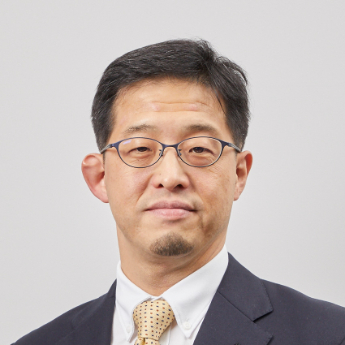
Distributed Systems Lab
Toshio HIROTSU
Professor (Computer Science, Graduate School)
Doctor (Engeering)
Research area:
- Internet
- Operating System
- Distributed Computing
- Ubiquitous Computing
Toshio HIROTSU received M.E and ph.D. degrees in computer science from Keio University in 1992, 1995, respectively. From 1995 to 2004, he worked in NTT Laboratories, Japan. He was in the Department of Information and Computer Science at Toyohashi University of Technology as an Associate Professor from 2004 to 2009. He joined the faculty of the Computer and Information Sciences at Hosei University in 2009.
His current research interests include system software for Internet, access network, cluster computing, virtualization and the ubiquitous computing.
He is a member of the ACM, IEEE, IPSJ and JSSST.
Message
System software is the generic name for the software working for other software. It includes operating systems, middleware, server software, management software, and virtualization supervisors. My research focuses on the system software increasing the security and the performance of the computer systems connecting to the both of the client and server sides of the Internet.
Prof. Runhe HUANG
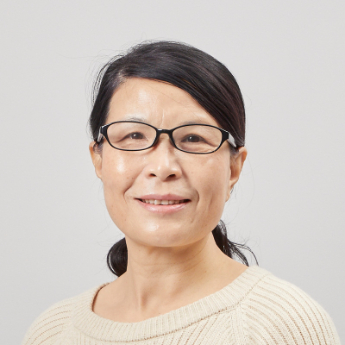
Artificial Intelligence Lab
Runhe HUANG
Professor (Computer Science, Graduate School)
Ph.D. (Computer Science)
Research area:
- Evolutionary Computation
- Machine Learning
Runhe HUANG received her B.Sc. in Electronics Technology from the National University of Defense Technology, China in 1982, and her Ph.D. in Computer Science and Mathematics from the University of the West of England, UK in 1993. She worked at the National University of Defense Technology over the period 1982-1988. In 1988, she received a Sino-Britain Friendship Scholarship for her Ph.D. study in the U.K. After receiving her Ph.D., she worked at the University of Aizu from 1993 to 2000. She has worked at CIS since 2000.
Dr. Huang has been working in the field of Computer Science and Engineering for nearly 30 years. Since 1982, her research fields have included Computer Supported Collaboration Work, Artificial Intelligence and Multi-agent Systems, Multimedia and Distributed Processing, Computational Intelligence Computing, Ubiquitous Intelligence Computing, Cyberworld Computing, and Aware Computing.
Dr. Huang is a member of IEEE and ACM. She has been active in various academic societies. She has published more than 120 academic refereed papers in the international conferences and journals. She received the Best Paper Award from the 2000 International Conference on Information Society in the 21st Century: Emerging Technologies and New Challenges.
Message
With rapid developments of the Internet and Web technologies, the 21st century is a networked digital information era. Accompanying this era, a new world (Cyberworld) is on the way to be brought out. It is an interesting and a full of mystery world. It is the time for us to discover mysteries and make inventions, in particularly, in the fields of world modeling and finding scientific and social laws for guiding people’s communications, collaborations and educations in this exciting world. Let us face the challenges and enjoy inventions in the 21st century!
My hobby is reading, traveling, cooking, gardening, programming and badminton.
Prof. Yamin LI
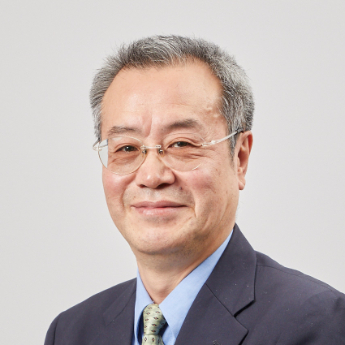
Computer Architecture Lab
Yamin LI
Professor (Computer Science, Graduate School)
Ph.D (Computer Science)
Research area:
- Computer Architecture
- Parallel and Distributed Systems
- Mobile Ad Hoc Networks
Yamin LI received his BS, MS, and Ph.D degrees in computer science and engineering from Tsinghua University, Beijing, China in 1982, 1984, 1989, respectively. From 1984 to 1993, he was a faculty member of Tsinghua University. From 1993 to 2000, he was an associate professor of University of Aizu. Since 2000, he has been a professor at the Faculty of Computer and Information Sciences, Hosei University.
His current research interests include: advanced computer organization and architecture, distributed
and parallel computer architecture, parallel multithreaded architecture, and computer arithmetic
algorithm and hardware implementation.
He is a senior member of the IEEE and a member of the
IEEE Computer Society.
Professor Emeritus
Prof. Kenji OHMORI
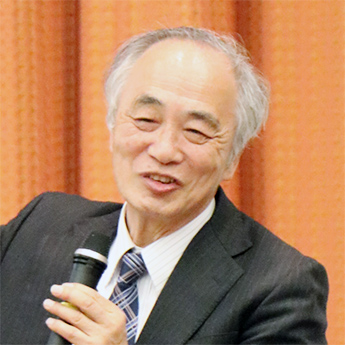
Kenji OHMORI
Professor Emeritus
Research area:
- Homotopy
- Enterprise system
- Cyberworlds
Prof. Nobuhiko KOIKE
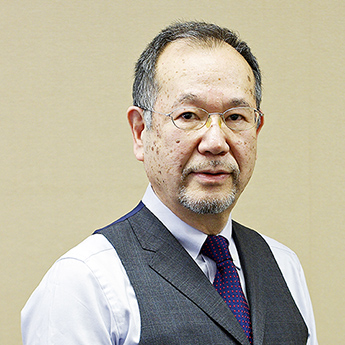
Nobuhiko KOIKE
Professor Emeritus
Ph.D. (Electrical Engineering)
Research area:
- Software Engineering
Prof. Satoru S. KANO
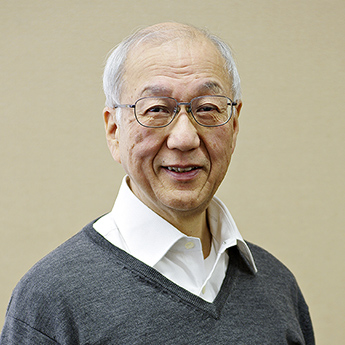
Satoru S. KANO
Professor Emeritus
Ph.D. (Physics)
Research area:
- Nonlinear Laser Spectroscopy
Prof. Michael MCDONALD
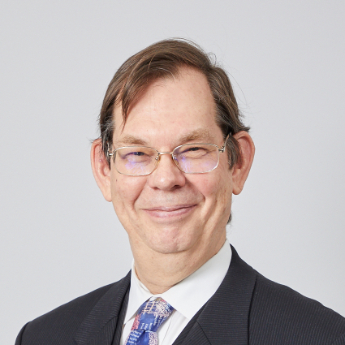
Michael MCDONALD
Professor (Computer Science)
MA in Music
Research area:
- Technical writing
- Text analysis
